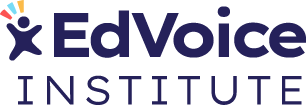Additional Supports & Learning Time
 A whole-child approach is paramount in closing the opportunity gap
A whole-child approach is paramount in closing the opportunity gap
We know students learn and develop best in a school environment that focuses on the interconnectedness of academic, social-emotional, and physical and mental health needs.
Policies must be passed to help districts and schools create robust systems of supports that leverage school-based and community-based resources to help students from low-income communities succeed. This is increasingly important in California given the large number of newcomers, English learners, foster children, and children experiencing homelessness in the K-12 school system.
Students from low-income communities must also have access to publicly funded, culturally responsive, quality after-school and summer programs focused on academic acceleration, social-emotional learning, mental health supports, and enrichment opportunities.
Finally, California’s public schools must connect with families in low-income communities and empower those families to support their children’s learning both in and outside of the classroom.
Why It Matters
Success in school is often dependent on outside factors.
Children from low-income communities are more likely than their higher-income peers to face challenges outside of school that may inhibit their learning including:
- Lack of adequate mental and physical healthcare
- Food and housing insecurity
- Instability at home
- Exposure to adverse childhood experiences
These systemic barriers and outside forces perpetuate many of the learning gaps we see in California schools. Research has shown that students from low-income communities also tend to have less access to enrichment and summer programs which are effective at improving student academic outcomes. There is also emerging evidence that additional learning time has been an effective strategy to combat COVID learning loss.
Overview of Policy Recommendations
- Every high-needs school will create and implement a comprehensive, integrated system of supports that is designed to meet the various needs of students. This is often referred to as a Multi-Tiered Systems of Support (MTSS)
- Leverage community-based resources to provide supports that meet the needs of students and families from low-income communities
- All high-needs schools will provide extended learning opportunities, including after-school and summer programs, that leverage school-based resources as well as partnerships with youth development organizations and other community partners
- Engage parents/caregivers as partners in determining effective interventions, supports and extended learning opportunities for their children
